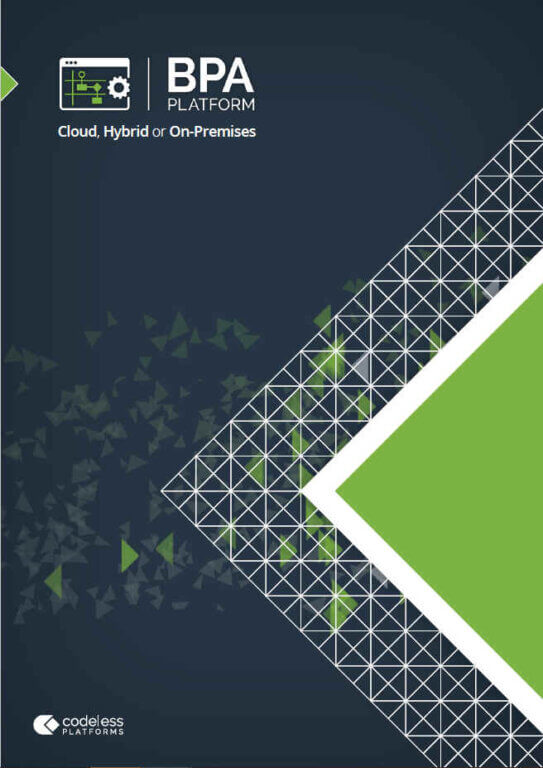Technology has completely transformed the commerce environment over the last decade. This is reflected not only in the way that businesses operate, but, more significantly, the way in which customers purchase goods and services.
Customers have high expectations in this digital era. After nearly two decades of reading, shopping, watching, searching for information and interacting on the Internet, customers expect services and purchasing experiences to run smoothly, be mobile friendly and secure. If the business systems in place are not working, then customers will simply avoid the product or service and go elsewhere. It’s that simple. There is just too much competition vying for the same custom.
In a fiercely competitive environment, threats are emerging every day and exploiting new technologies. In fact, technology is enabling peer-to-peer commerce to replace activities and services traditionally carried out by established companies. Entry costs are now so low that any small or individually run business can set up a store and tap into a global market.
Every business, therefore, needs to consider and constantly evaluate how effective its systems are and make sure it is in a position to anticipate and react to the growing demands of the marketplace. An economic downturn and business survival strategy will be determined by the way that IT systems are deployed and used. This can range from the initial customer experience on the website or eCommerce store, to include more targeted activities such as predictive analytics, accounting, accurate business forecasting, sales and marketing, real time monitoring and instant customer support.
Sell, Sell, Sell
Websites and eCommerce stores are generally becoming the first touch point (of interaction) with customers and can have a significant effect on future relationships. It is therefore essential that these deliver the experience that customers demand. Fortunately, there are a wide-range of easily deployable and customisable eCommerce platforms available, such as Magento, WooCommerce, Shopify, Bigcommerce, 3dcart and Volusion, that can all handle online sales.
Integrating these eCommerce platforms with existing backend systems will then give businesses a competitive edge. Automating admin tasks, giving employees on-demand access to critical real-time information, as well as improving workflow, can result in cutting costs, and ultimately lead towards better efficiencies and help employees make better business decisions.
The business will also be able to handle many more orders, fewer mistakes will be made and transactions will be quicker and more reliable. As a result, this more streamlined process will help improve the customer experience, and resources can then be used to develop new products and services and exploit all sales opportunities.
New Payment Technology Is Changing the Way Transactions Are Performed
New payment systems and monetisation methods are another significant technological development that is having an impact on commerce. For a business to be successful in this current market it needs to be able to cater for online payments, digital wallet services, new mobile point-of-sale technologies as well as front-end consumer technologies such as mobile apps.
“Companies that use newer online payment options such as Square, Bitcoin currency, Apple/Google payment options, etc. have a major edge over competitors. When you’re a young company that was built to begin with on a fluid, ever-changing, Web-based economy, it’s easy to adapt. On the other hand, larger companies, even when they are willing to step out of their comfort zones, have to overhaul larger, more-entrenched payment-processing systems that have existed for years or decades.” Joel MacDonald, founder, EnergyRates.ca
To take payments online you need both a payment gateway and a merchant account. A merchant account is where funds are held before being deposited into your bank account. The role of the payment gateway is simply to decline or approve a transaction.
There are numerous payment service providers available. Some, such as PayPal, Sage Pay, Square, Worldpay and Stripe, are more widely known than others, but most should be easy to integrate with any eCommerce platform. The main issue that arises is their integration with accounting, CRM or ERP packages.
Control over the management of payments is vital for a business to succeed. The finance team need to make sure that transactions have been approved and there is no fraudulent activity in order for them to approve distribution. Obviously, any delay in relaying this information to the accounting package can have an effect on other departments.
Additionally, the payment providers hold a wealth of critical customer information that needs to be reconciled with ERP or CRM applications. This data needs to be shared around the organisation so that each department can fulfil its obligations.
Managing Resources and Logistics
The effective management of resources and logistics is key to the success of any commerce business, whether B2B or B2C. Stock needs to be readily available and the infrastructure in place to deliver. It can be an extremely complex process, but one that can be addressed easily with technology.
As expected, many organisations now rely on systems and applications to manage a wide-range of activities, ranging from stock control and warehousing to orders and distribution. The major efficiency issue that may arise from using technology is whether or not the data is being utilised properly.
Integration and communication between applications and systems is essential for the sales cycle and logistics to work. For businesses that have an online presence, for example, it is paramount that the eCommerce platform or website is integrated with the courier service or distribution company. Additionally, warehousing systems controlling stock levels, returned goods etc., need to integrate with ERP and eCommerce systems. Only then will the right information be available across the entire business.
Many of these business processes can be automated to improve efficiency such as automating delivery notifications, cross-checking pricing data for any mistakes or changes, or pushing orders into warehousing systems.
Customer Support and Satisfaction
One of the biggest factors that can contribute to a business being successful or not is customer satisfaction. The experience, service and support provided will often determine whether repeat business, recommendations and / or positive feedback will ensue.
Businesses that get it wrong tend to suffer the consequences. Negative reviews and feedback are very easy in this digital age. Social media provides a range of platforms for customers to quickly spread opinion and comment about a product, service or business, which can be extremely detrimental to a business’ reputation.
It is therefore essential that businesses implement efficient systems and processes to provide a streamlined service, whether this is for communication, delivery or support. IT systems, such as customer relationship management systems (CRM), dedicated helpdesk platforms or notification platforms, are widely available and can address these issues, as well as provide insight into customers’ needs, trends, behaviours and satisfaction levels.
Decision Making for the Future
Collecting and analysing data from customers will ultimately help businesses make important business decisions and develop strategies to improve efficiencies and encourage growth. Technology is the key enabler for this type of analytics, and is becoming more and more accessible as developments are made. In addition to the above systems, surveys can be created and automated to provide feedback on particular subjects, and fed into analytics software.
“As [analytics] software develops further, it’s becoming cheaper and cheaper, which is allowing the small business owner to make more informed decisions. Years ago, it took a complex and highly expensive system of highly trained developers and designers to be able to produce [an analytics system], but now, with tools like Optimizely, anyone can add this into their site and be testing conversions within 10 minutes.” Ross Davies, Account Director, Strafe Creative
By having these key insights into customer behaviour, needs and trends, businesses are able to use the data for product development such as ease-of-use, personalisation or simplification. In fact, many experts, such as James Canton, a Global Futurist and CEO of the Institute for Global Futures, believe that the predictive enterprise is the next evolution in business.
“Every business must become predictive-to be relevant to be able to leverage data about the market, their customers, the competition, supply chains, pricing, you name it. Data—captured, analyzed, understood and even monetized is the secret sauce that is leading the massive changes coming in business. If you’re not getting control over every type of your data—streaming, structured, unstructured, mobile, market, Internet of Things … you name it, then you must change this practice now to embrace a fundamental change coming in business, I advise.” James Canton
Marketing and Growing Business
The ability to perform advanced analytics, even for small businesses, will not only help shape product development and servicing, it can also be used to help clarify and formulate marketing campaigns which can enhance business growth.
Again, technology has an important role to play in making marketing activities highly efficient. Developing and launching a website or online shop is now extremely easy, dedicated software can automate targeted email campaigns, and the wide range of social communication platforms available such as Facebook, Twitter, LinkedIn, Pinterest etc., provide the tools and ability to reach out to an extremely large, potentially global, audience.
Planning for the Future
The cost of new business systems and applications used to be fairly prohibitive, especially to small businesses. However, costs have plummeted and they have become extremely accessible and easy-to-use. This is fortunate, as any business that isn’t adopting new technology and improving efficiencies is facing a stark reality. If it can’t anticipate, respond and react to the constantly changing marketplace then it is going to swiftly go out of business.
To learn more about how your business can improve system efficiency download the brochure below or call us on +44 (0)330 99 88 700.

